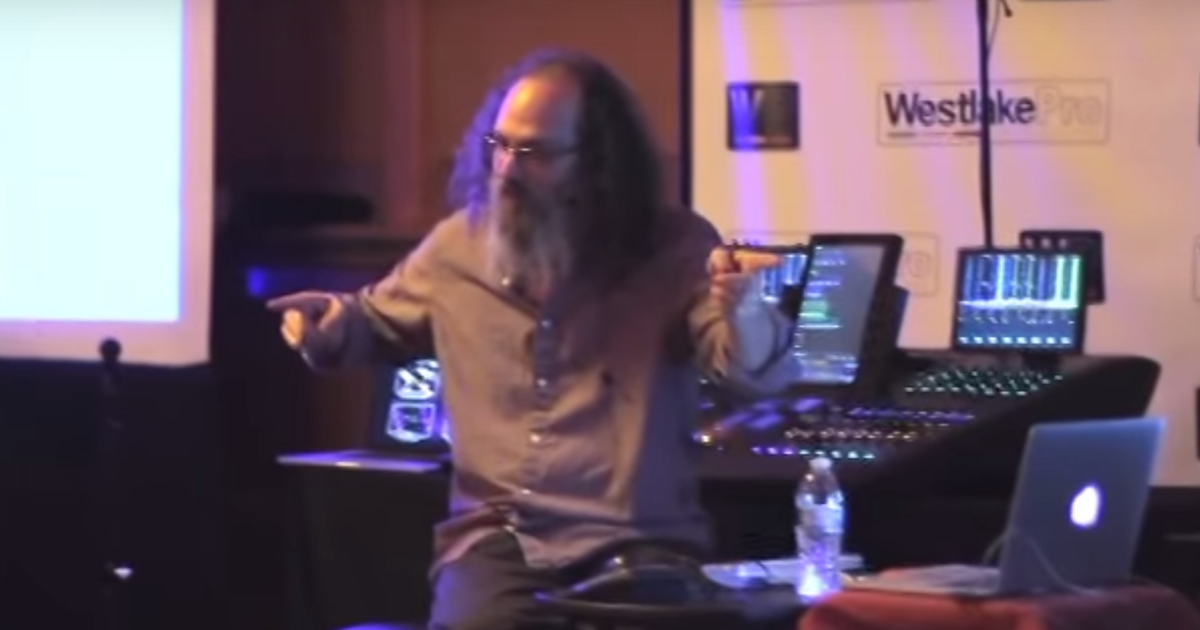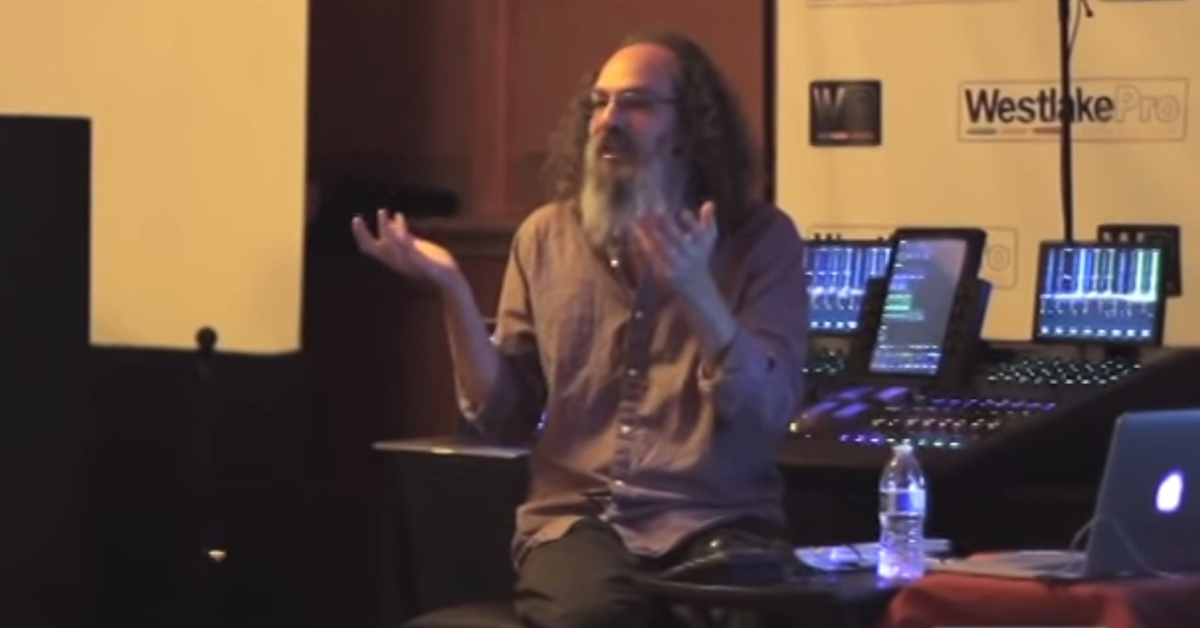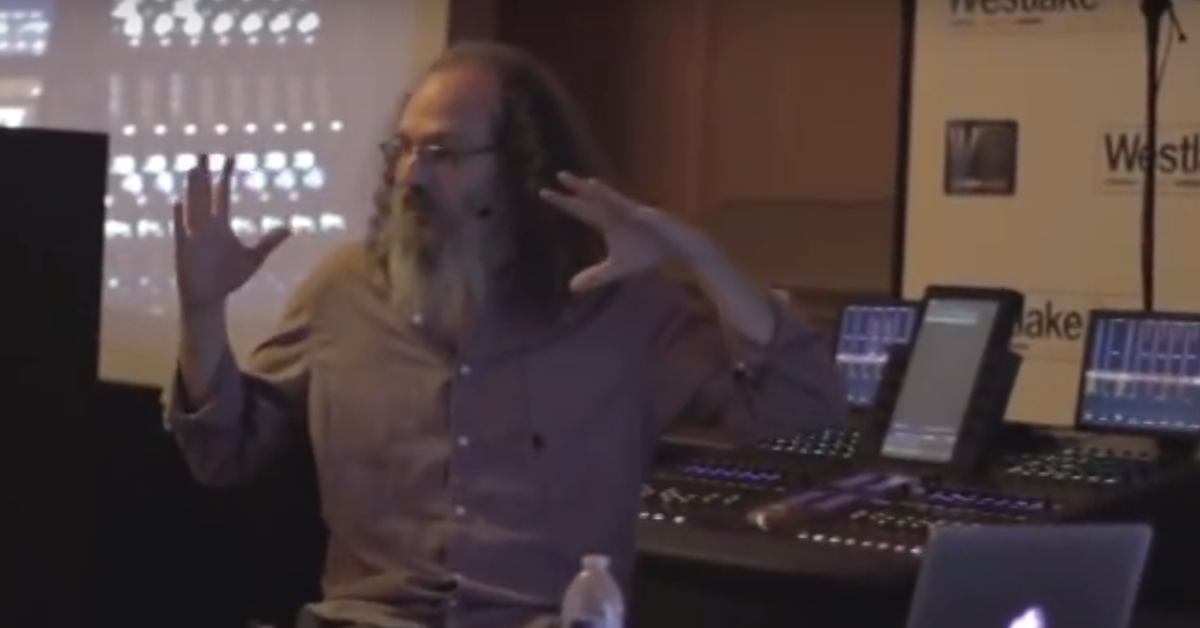Mixing Masterclass with Andrew Scheps — Part 9
First of all, that’s impossible. You cannot kill The Bends. And came back the next day and realized that all of our mixes were horrible, because we kept convincing ourselves it was awesome not by the mix we were hearing, but by how much better it sounded than the CD copy of The Bends that we happened to be listening to at that time.
So I know a lot of people use references, I just don’t know how, and I think that — I mean, I’m sure — and everyone else in the room that does mixing a lot will tell you — you think you know what you’re doing, but there’s always this sort of trance period where you’re working on a mix, and two hours later, you feel like, “Well, I haven’t really done much,” but you’ve probably done 600 very small things in the session to just fix everything that you’re hearing as you go, and that’s when the mix really takes shape, and you have no idea what you’ve done. Absolutely no idea.
And for me, trying to reference things just breaks that concentration, and it just doesn’t work for me. But that’s not necessarily a good idea, especially when you’re starting, you should have multiple pairs of speakers and go other places.
One of the things about listening other places which is awesome is it actually changes your perspective, so you won’t think you sound better than the best.
You know, if you go in the house, or just have somebody else come listen, my wife in the back has heard almost every single mix I’ve done before anyone else, and sometimes, it’s because she’ll tell me something about the mix that I’m missing. A lot of times, she’ll tell me something about the mix that I know, but I’m way too lazy to fix, and I realize, “Okay, I can’t get away with it,” and sometimes, it just gets me to listen with that sort of adrenaline rush of, “Oh my god, someone else is hearing this, and I suck, and it’s going to be horrible, and they’re going to hate it,” and then you really hear, like, “Woah, the vocal is about 19dB too loud,” and you don’t even notice, because you’re so far in it.
I mean, I think compressing distorted guitars is one of the silliest things I’ve ever seen, because of course, they’re already square waves, and there are no dynamics left in them. So unless you’re going for the color, I don’t know. But parallel compression on them will work very well, because it will change the color.
At the moment, I will usually hunt for whatever frequency is the most annoying and kind of notch it out, so I can turn them up as opposed to trying to find frequencies that I can boost. But it depends so much on how well it’s played, how well it’s recorded, and most of all, how good is the part?
You know, you get something to mix, and those chorus guitars are huge because there are open, ringing strings in them, and that doesn’t really help, right? So you’ve got wrong notes.
At that point, I will high-pass everything below 150, 200Hz on them, because the bass will have to cover that, because otherwise, they mess up the whole song. So it’s more about trying to make the version that you’ve got work the best you can doing the least you can do.
And I just made that up. So you ask me in a week, it’ll be different.
I usually — because I mix at home, most of the time. My studio is at home. So I will get up in the morning, and get out there pretty early, and I like to be done by dinner. Like, for whatever the day is.
But no, no, I don’t, and again, it’s because I’m an idiot. Well, when I’m starting a mix, it’s loud, and it can be loud for hours. One of the things that’s good is that the Tannoys aren’t super harsh. There’s no — like, their crossover point is so transparent that you don’t have this weird, mid-range jumble that will jump out at you, like a lot of speakers have.
So that helps. And they’re bright enough that I don’t actually have them coming right at me, they blow past me, so that helps. I’m not getting hammered as much, but I can’t get the balance without listening super loud. To really feel the kick, and the vocal, and the bass, and know that’s working, I have to listen loud, and sometimes that can be five or six hours, and it’s brutal.
When I’m mixing the Sabbath record, or Metallica, I can take much, much less of it than I can take with the Beyonce track. You can crank that all day. There’s nothing…
Yeah, yeah, exactly, and I mean, no, if it’s brutal, you turn it down, but it’s more that I feel myself getting fatigued, and like, “Okay, I got to turn down,” and then I turn it down a lot, because whatever the lowest level you can actually hear it over the sound of the dog next door, you can get a lot of work done.
There’s so much obvious balance stuff that you’ll never hear loud, and you can EQ and pan and do everything super quiet too, but I’m almost never in the middle. It’s really quiet or really loud.




